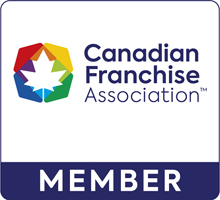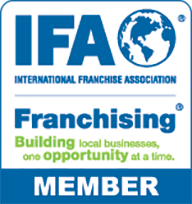Good News! CFA Says Ontario Minimum Wage Hike Won’t Affect Franchising
At last month’s FranchiseCanada Show, put on by the Canadian Franchise Association (CFA), the organization had some welcome news for would-be business owners.
The recent minimum wage hike in Ontario from $11.60 to $14 per hour (with another bump of $1 due next year) won’t negatively affect franchise growth in the province, according to Ryan Eickmeier, vice president of government relations and public policy at the CFA.
In fact, Eickmeier is expecting franchising in the province to grow despite the significant jump in minimum wage.
"While minimum wage will indeed impact and inhibit growth of the franchise model as a whole, it really is an opportunity for people to become an entrepreneur," Eickmeier told CBC news.
Earlier in the year, some franchisees cut employee benefits and paid breaks in response to the wage hike, but employees and labour advocates cried foul over the move, saying that huge multinational corporations should be able to help franchisees find other ways to deal with the wage increase.
"What they've been forced to do is find ways to really offset that gap that they've had to manage," Eickmeier said. "That can include things like changing operating hours, increasing prices. They've gone through all of their options to keep their doors open and keep their employees coming in every day."
The VP of government relations and public policy for CFA outlined some of the many advantages to franchising and also noted that many franchises won’t be affected by the minimum wage hike anyway.
"You're part of an established system, you have a brand that has proven itself in the Canadian marketplace, you have a network of other franchisees that are going through the same challenges that you are," he said. "Many of them have been paying above and beyond minimum wage for years and it's really dependant on the sector that they operate in. There's an ability for them to work with their employees, to work with their franchise brand to make it work."
The CBC also spoke to a franchisee from a well-known smoothie franchise who said although he has had to cut back on some hours and has had to lower his expectations for how much profit he’ll take in this year, ultimately minimum wage workers having more money to spend should give a boost to the economy, which puts a silver lining on having to give the hefty raises.
Running a business is a constant balance between making profit, following regulations and doing what’s best for your employees. Being in the right franchising situation helps immensely with this fine balancing act. Sign up for a free FranNet franchise search and consultation today and let us help you on your way to business ownership.
A look at minimum wages by province and territory and how they’re set to change:
|
Province |
Current Min. Wage |
Future Min. Wage |
|
Alberta |
$13.60 |
$15 - Oct. 1, 2018 |
|
British Columbia |
$11.35 |
$12.65 - June 1 2018 $13.85 - June 1, 2019 $14.60 - June 1, 2020 $15.20 - June 1, 2021 |
|
Manitoba |
$11.15 |
-- |
|
New Brunswick |
$11 |
$11.25 - April 1, 2018 In the future, it will be adjusted annually relative to the Consumer Price Index. |
|
Newfoundland & Labrador |
$11 |
-- |
|
Northwest Territories |
$12.50 |
$13.46 - April 1, 2018 |
|
Nova Scotia |
$10.85 |
$11 - April 1, 2018 On April 1 of each year, minimum wage is adjusted relative to the Consumer Price Index. |
|
Nunavut |
$13 |
Adjusted annually on April 1. |
|
Ontario |
$14 |
$15 - Jan. 1, 2019 |
|
Prince Edward Island |
$11.25 |
$11.55 - April 1, 2018 |
|
Quebec |
$11.25 |
$12 - May 1, 2018 |
|
Saskatchewan |
$10.96 |
October 1 of each year, minimum wage is adjusted relative to the Consumer Price Index and Average Hourly Wage. |
|
Yukon |
$11.32 |
April 1 of each year, minimum wage is adjusted relative to the Consumer Price Index. |
Source: Retail Council of Canada





